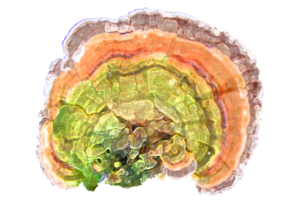Jędrzejewski T, Pawlikowska M, Piotrowski J, Kozak W
Abstract
Protein-bound polysaccharides (PBP) isolated from Coriolus versicolor (CV) are classified as biological response modifiers capable of exhibiting various biological activities, such as anti-tumour and immunopotentiating activity. Since we have found in vivo studies that the tested PBP induced prolongation of endotoxin fever in rats, the aim of the present study was to investigate the in vitro effect of the PBP on the production of pro-inflammatory cytokines by the lipolysaccharide (LPS)-stimulated rat peripheral blood mononuclear cells (PBMCs). The results showed that the PBP affect the immunomodulating properties of the LPS-treated PBMCs by the enhancement of mitogenic activity and attenuation of the LPS-induced production of interleukin (IL)-1β and IL-6. Moreover, the tested polysaccharides peptides themselves also exhibit immunomodulatory properties manifested in the increased cell proliferation and pro-inflammatory cytokine release from PBMCs. The effect of PBP on the both phenomena was time-dependent and occurred in the U-shaped dose response manner. These findings are significant when considering the use of commercially available PBP from CV extract by cancer patients suffering from immunodeficiency, who may experience microbial infections during therapy.
Copyright © 2016 European Federation of Immunological Societies. Published by Elsevier B.V. All rights reserved.
Reference:
Immunol Lett. 2016 Oct;178:140-7. doi: 10.1016/j.imlet.2016.08.013. Epub 2016 Sep 1

